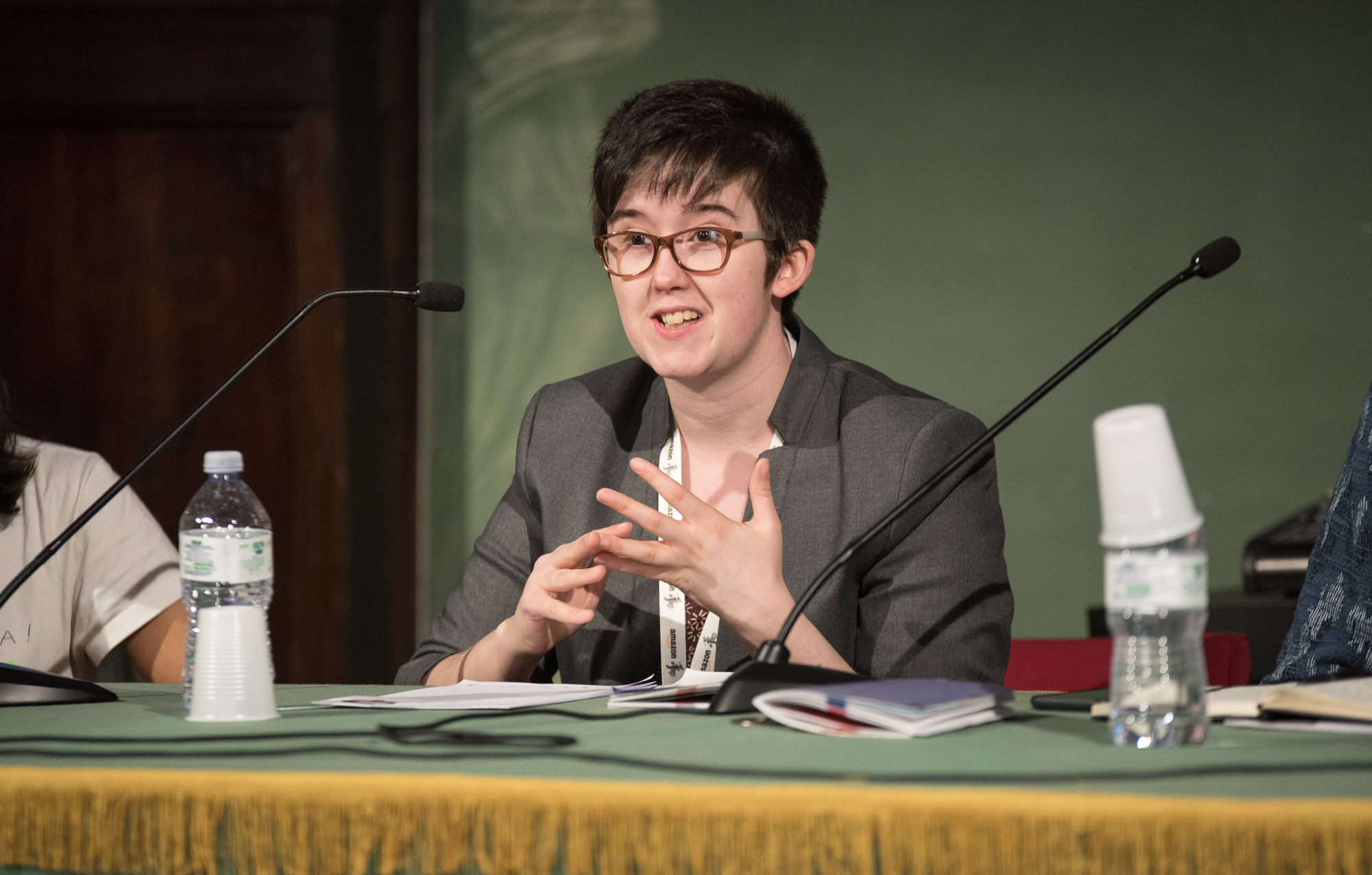A few weeks ago, when visiting Londonderry, the mood of residents was hopeful. Despite the car bomb explosions earlier in the year, people were largely unfazed, reasoning that the groups undertaking terrorist acts in an effort to reignite the conflict of the Troubles had little to no support, next to no funding, and were at odds even with most Republicans.
The people of Londonderry, whatever side of the Troubles they were on, do not want to see the peace broken. Republican groups continue to argue their right to be free of British colonial rule, but recognise the value of peaceful action over terrorism and murder.
The situation changed, however, with the murder of Lyra McKee. The young journalist was covering riots in Creggan, an area rife with poverty and a prime recruiting area for new and violent dissident groups. When young people have little in the way of future prospects, the promise of being a part of something larger than themselves, a higher purpose, is all too alluring. As Lyra said herself, she was part of “the Good Friday Agreement generation, destined to never witness the horrors of war but to reap the spoils of peace. The spoils just never seemed to reach us.”
Londonderry has been left without investment and governmental projects for far too long. It remains a byword for terrorism and violence. Upon visiting, it seemed that the city was finally growing into itself, forging its own identity and at last escaping the stereotypes of the past, its false branding as a hotbed of crime and conflict and nothing else.
Now, the UK – and indeed the world – look to Londonderry again for another senseless murder of an innocent victim. Lyra McKee was a young journalist, celebrated for her activism within the LGBT community, pushing for acceptance within the often-hard-line religious culture of Northern Ireland. In her 2017 TED talk at Stormont, she addressed issues of intolerance and hate, and how these sentiments seep across communities when left unchecked. At the age of twenty-nine, she was an accomplished writer, having contributed to Buzzfeed, Private Eye and the Atlantic, as well as signing a two-book deal with Faber and Faber.
The shift in mood in response to her death has been one of passionate indignation towards those that committed her murder. The New IRA, having accepted responsibility for the unprovoked killing, has lost any shred of credibility it might have had. Many locals are arguing the damage that Lyra’s murder will have on the Republican movement as a whole is irreparable. The aim of the New IRA was to rekindle violence and to goad police into an armed response that could be spun in a favourable way to their movement. Instead, all seem united by their disgust at the killing of an innocent and talented young woman who fought for the good of Northern Ireland, aside from party politics and old divisions.
Londonderry is the perfect microcosm for Northern Ireland as a whole. The vast majority, no matter what they believe, are sick of conflict and value a peaceful solution above all else. But its position on the border, its history of Bloody Sunday, and its status as a city all but forgotten on the national stage makes Londonderry a hotspot for a potential threat. Until now, it has been up to local residents to combat these dangers within their own communities without outside aid. As a result, Londonderry has the feeling of a large village rather than a sprawling city, a hive of close-knit communities that, while still wary of one another and segregated, are brought together by their pride in their city.
Lyra McKee is now the latest name on a long list of victims of the Troubles, a list which she herself drew further attention to when she reported that more people had died from suicide as a result of the Troubles than ever died in the violence itself. This betrays the only solution that will prevent more of these murders, to look to the best that Londonderry has to offer and to empower those that can lift the city up.
Once again, the national press is saturated by stories of conflict in Londonderry, as it should be. Yet, once the tragedy of Lyra’s murder fades from the front pages and from national consciousness, we must remember what she stood for and know that her vision of peace and acceptance, and an un-Troubled Londonderry, is reliant on a better understanding of the city and its people. Rather than a focus on the actions of a few fringe radicals, we must look to the good majority of Londonderry citizens, fractured in some beliefs but ultimately united in the face of Lyra’s tragedy.
Michael Keating
Image: Wikimedia Commons.

